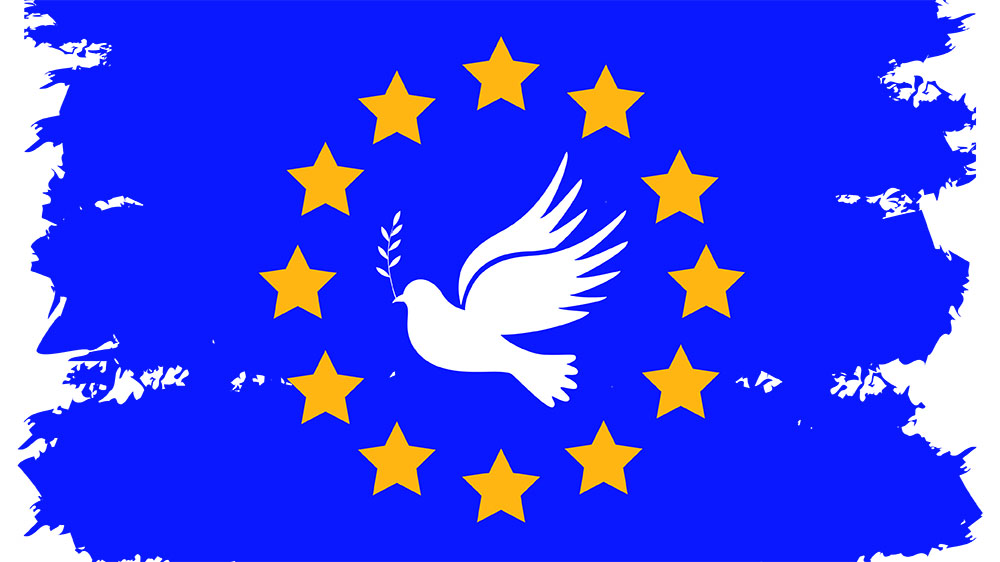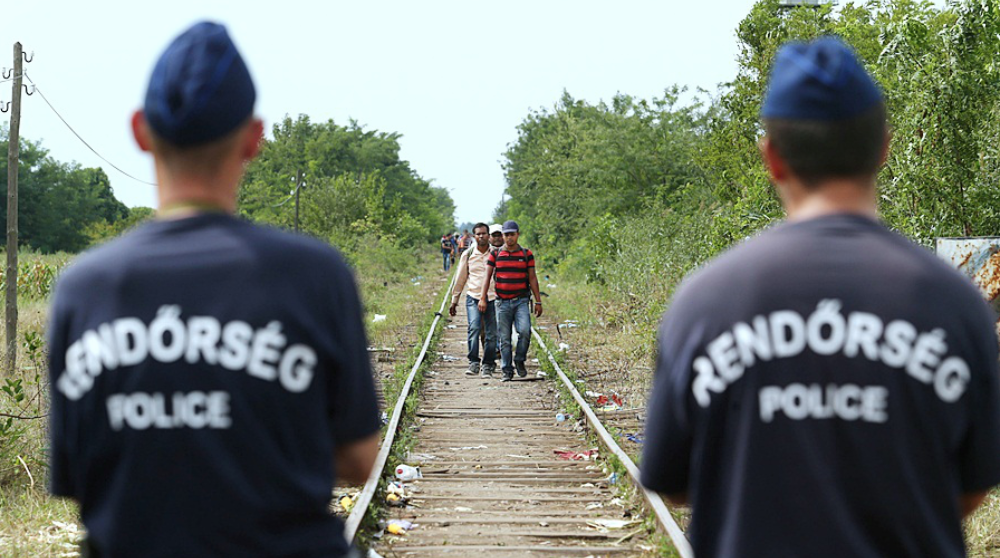OPINION. Europe Day held on 9 May every year celebrates peace and unity in Europe. Yet, conflict prevention and peacebuilding remain under prioritized. Now its time for EU to prioritize peacebuilding as the cornerstone of its foreign policy, addressing the root causes of conflicts, and ontribute to conflict prevention through diplomacy, writes Hilde Deman, Executive director the peacebuilding organisation Search for Common Ground.
The opinions expressed in the article are those of the author.
May 9, the annual Europe Day, celebrates peace and unity. The date commemorates the historic Schuman Declaration, which later became the catalyst for the European Union. However, with exactly one month until the European elections, is there truly cause for celebration? In 2024, peace and unity appear more distant than ever.
Let’s rewind to 2022 for a moment. The outbreak of the war in Ukraine served as a wake-up call for many Europeans, who suddenly realized the fragility of the ”European peace” they had taken for granted for years. Challenging times also began for organisations like ours, dedicated to peacebuilding. How can we continue advocating for peace, dialogue, and collaboration when war rages at the borders of our own continent? How can we demand nuance when conflict is oversimplified into a black-and-white narrative? And how do we maintain hope in the face of the distressing news coverage of the war raging in Gaza?
Escalating sense of insecurity
Through social media, images of war and conflict permeate our living rooms in real-time. The sense of insecurity is escalating rapidly among European citizens, leading to increasingly vocal calls for militarization and weaponization in our societies. Politicians, generals, and opinion-makers warn of further escalation of conflicts and advocate for increased preparedness. What stands out is the single focus on armament as the solution for maintaining peace in Europe and its borders. Diplomacy, let alone conflict prevention and peacebuilding, receives scant attention. Yet, these are crucial for addressing the root causes of war and conflict. Without concerted efforts to tackle these underlying issues, societies remain vulnerable to the recurrence of conflict, and achieving lasting peace and stability becomes increasingly elusive.
Furthermore, when peacebuilding does enter the conversation, criticisms arise: ’It doesn’t work; look at the rising number of conflicts… peace seems farther away than ever.’ Yet, consider it in comparison to education. If we continually slash education budgets, neglect investments in quality education for teachers, and then lament the inadequacy of our youth’s schooling, it’s a self-fulfilling prophecy. Similarly, in our field of peacebuilding, the decline in political attention and funding for peacebuilding and conflict prevention is evident both in Europe and globally. In fact, OECD-DAC figures indicate that funding for peacebuilding is at a 15-year low. This needs to change, radically and rapidly.
Peacebuilding, as the term suggests, lays the foundation for future peace. It is a process through which we stabilize and restore societies affected by violent conflict to promote lasting peace and security. Inclusion is one of the keys to success in this process. Leaders of conflicting parties are seldom fully representative of the people they claim to represent. Consequently, peace initiatives may falter. Therefore, it is crucial to involve the appropriate individuals and groups, rather than solely focusing on military or political elites. Peacebuilding transcends the realm of older male policymakers behind closed doors. It encompasses teachers who initiate dialogues with their (former) students turned combatants, and young people who engage their peers over the radio, discussing commonalities ranging from music to sports to the shared aspiration for a peaceful society. Consider, for instance, the women who negotiate in their community during disputes on access to the water resources, serving as liaisons between the community and the local government. Or the young man in DR Congo managing a 10,000-member WhatsApp group. They possess firsthand experience of ’their conflict’ and are thus best positioned to offer recommendations.
Continue to invest in peacebuilding
Of course, supporting these peacebuilders requires energy and resources. That’s why we must continue to invest in peacebuilding. Currently, a debate rages among NATO members about spending 2 percent of GDP on military purposes. But besides that, can we also talk about allocating increased resources for peacebuilding, instead of solely pouring millions into the defence industry? And let’s not forget to broaden our perspective beyond the conflicts that dominate the headlines daily. According to the World Bank, two-thirds of the global population living in extreme poverty reside in fragile or conflict-affected regions. Additionally, as of this year, 80 percent of all humanitarian needs worldwide will stem from conflict. Yet, despite this common knowledge, conflict prevention and peacebuilding remain under prioritized.
Peace isn’t simply achieved by laying down weapons and ceasing violence. It hinges on a commitment to ongoing dialogue and collective problem-solving. Crucially, peace initiatives must ensure representation and amplify every voice. Peace isn’t about the triumph of the so-called oppressed over the oppressor. It’s about fostering a just space where everyone feels safe and comfortable.
At a time when the Democratic Republic of Congo faces a humanitarian crisis with nearly 7 million displaced people, the war in Sudan has been ongoing for more than a year, and numerous other conflicts around the world rage without receiving the necessary attention, Europe must maintain coherence in its approach to international conflicts and uphold respect for international law. The EU should prioritize peacebuilding and the right to live in security for all as the cornerstone of its foreign policy. This entails actively contributing to conflict prevention through diplomacy, addressing the root causes of conflicts, and allocating adequate financial resources.
Hilde Deman
Executive director Search for Common Ground
Read also
|
Uppläsning av artikel
|


